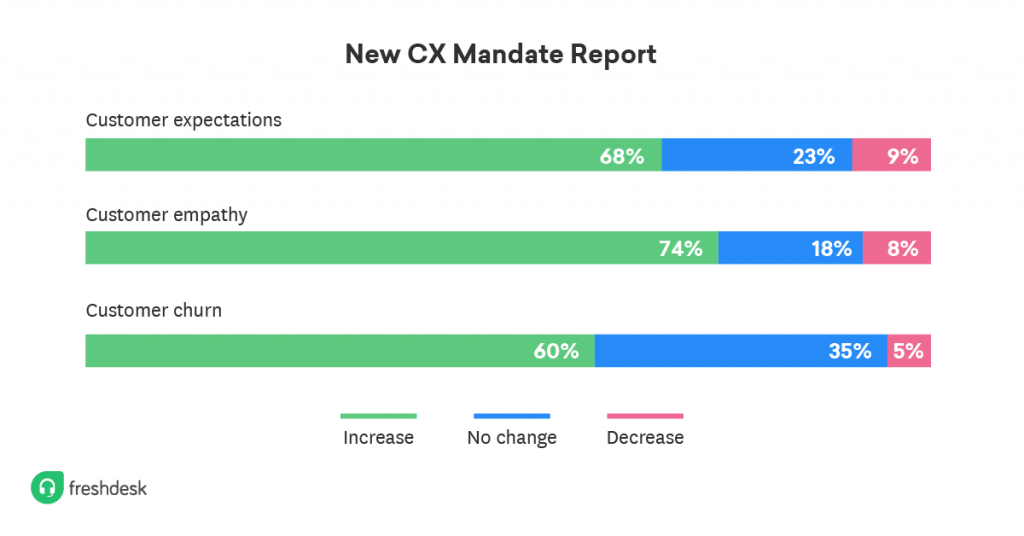Agent assist software is not novel; it has stood around for years to varying degrees. Some have done it better than others, like Five9, which offers intelligent virtual assistant software that is quite advanced.
There are also smaller, more niche players that have some compelling offerings, as well.
Customer engagement platform developer and Gartner customer engagement leader Verint; recently announced that it had launched a version of the conversational AI (artificial intelligence) powered technology - growing in popularity, known as agent assist. Powered by Verint Da Vinci AI and Analytics, Verint notes that the software solution will help organizations connect with customers on a more empathic and human-level.
Verint’s most recent innovations now offer expanded linguistic and acoustic analysis functionalities, along with AI-powered bots that can comprehend what someone says.
"They can also understand how it is said and the corresponding agent’s actions and desktop activity.”
These advanced functionalities could provide a much-needed boost to call handle times and increase the quantity of queries agents can take. They could, even offer a boost to an enterprise's bottom line as customers are likely to be overall more satisfied.
Agent productivity will also likely grow higher - making the move appear to be a win-win. I want to explore; however, what brought the shift in customer behavior changes that led to agents needing such RTAA (real-time agent assist) software and if the technology is a 'good one.

Why Is Everyone Getting into Agent Assist?
Companies with similar offerings, like Google Cloud's Contact Center AI - tout the call center technology can improve customer satisfaction by delivering "consistent, high-quality responses and quicker training by learning from high-performing agents by ten percent."
In the world of customer delight - ten points can determine the difference between customer retention, content, and agent productivity and not experiencing those desired elements of conducting business due to lackluster customer experiences.
Verint's move, chiefly stoked by increasing customer needs to resolve queries more swiftly, but the pandemic egged much of the notion on and accelerated it, too. As providers from all over the UC/CX realm noticed spikes in calls to clinics, doctor offices, travel agencies, retailers, and nearly every other industry impacted by COVID-19, agents were overwhelmed with calls.
Invoca develops an active conversation intelligence and call center management platform that has similar functionality to agent assist platforms. Following data analysis, the company found that most industries experienced sporadic spikes in call/contact volume during COVID-19.
Take a look:

Impact of Call Volume Invoca
Customers grew fed up with longer-than-usual wait times. For companies, this may have translated into lost customers, revenue, or even poor reviews. With (the right) training, agents can learn how to use the technology in a way that best suits them, how to best leverage the technology, if you will.
The good news for users of agent assist technology is that user-friendliness is typically front of mind when these solutions get built, so they are (ordinarily) plenty intuitive, as well. Dan Miller, Head Analyst at Opus Research, believes that customers rightfully expect a rapid response and sensitivity to their moods/overall sentiment, continuing:
"Verint’s approach employs AI-infused analytics during each conversation to help agents respond empathetically, resulting in higher levels of engagement, task completion, and customer satisfaction.”
Neural Networks & the "Da Vinci" Engine
Beyond Verint's expanded capabilities to assist, Verint further enhanced ways for agents to access new real-time/post-call transcription via its newly-redesigned Da Vinci Transcription Engine.
It says it put a ton of resources into developing the company's what it markets as the firm's "market-leading transcription and comprehension accuracy but released additional enhancements to its cloud platform. It extended the capabilities of its Engagement Data Management solution to include experience data."
Writing in a statement, Verint shared:
"Through this combination of interaction and experience data management, Verint provides brands with a comprehensive view of customer engagement data across all customer touchpoints."
The Ethics of AI
Verint’s Daniel Ziv, Vice President, Speech and Text Analytics, Global Product Strategy, believes that nearly all businesses know the importance of important empathy - yet most struggle to deliver it consistently, sharing with GetVoIP News:
“Especially given the work-from-anywhere contact center environment, which is why our latest innovation supports the delivery of exceptional experiences aligned with the customer’s emotional state and intent for more impactful and meaningful interactions, guiding agents in real-time towards the best possible outcome."
While I agree with this notion, I somewhat take issue with it, too.
Until now, we have learned that real-time agent assistance, if correctly leveraged - could make a customer service experience more distinct than at companies that do not utilize the technology. And that lot of the potential success of agent assist technology depends on how well it gets trained, of course, meaning the kind of data it gets fed should be accurate/quality.
One could, however, argue that all this is a slippery slope and question: Should a machine tell a human how to behave? How far is too far? If the agent leverages the (right) aspects of the software, they will likely see a boost in productivity; but that requires getting the proper training and understanding of the technology.
Batya Friedman is a Human-Computer Interaction Professor at the University of Washington’s Information School, and she has said a lot on the subject matter, including:
“Our scientific and technological capacities have and will continue to far - surpass our moral ones – that is (our) ability to use wisely and humanely the knowledge and tools that we develop."
She further cautioned:
"At stake is nothing less than what sort of society we want to live in and how we experience our humanity.”
Agents Must Ignore Aspects of RTAA
Agents could merely ignore certain aspects of the technology and use it how they see fit; once they receive training on the full scope of functionalities. I am not sure that any human needs a machine to tell them when to smile, for instance. That is a human feeling that cannot get delegated to a machine, or else we begin to lose our way even more.
A warm-blooded human agent can read a situation to understand how they should behave on a human level. Nonetheless, we have arrived. And we are walking a fine line. Nearly everyone has some form of real-time agent assist software, including video conferencing and collaboration software developer, Zoom and cloud contact center provider, Talkdesk.
The slippery slope here lies in the fact that technology is essentially telling human agents how to behave to keep customers happy. Verint says that it comes down to empowering brands to provide the best possible customer service with the help of these emerging technologies.
Just like most aspects of life, balance is fundamental, and fine-tuning this technology will remain chief in propelling us into the future. Perhaps in Verint’s case, its RTAA will prove less invasive than others; but only time will tell.



